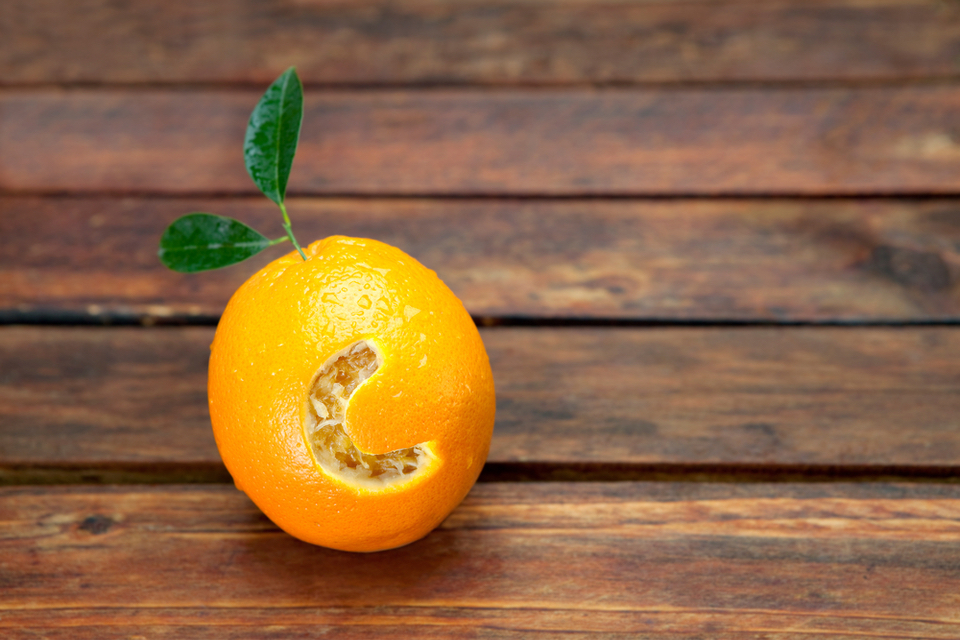May is mental health awareness month. According to Mental Health America, about 50 million Americans are experiencing at least one mental health disorder while 55% of people with mental illness have not received treatment. Based on its annual report, MHA reveals that mental health disorders are on the rise. If you believe you might be suffering from mental health issues like depression, anxiety or suicidal thoughts, it is important to seek help. Therapy and medications can be effective treatments for these conditions.
Beyond that, there are a number of known foods and nutrients that naturally support brain function and mental health. Below are six nutrients backed by scientific evidence for their potential to boost mental health. From omega-3 fatty acids to ashwagandha, read on to learn more about how these key nutrients may be able to support your overall mental well-being.
Omega-3 Fatty Acids
Omega-3 fatty acids are essential fats that are crucial to brain function and development. They are commonly found in fatty fish like salmon and tuna, as well as in walnuts and flaxseed. Studies have shown that omega-3s can help improve symptoms of depression and anxiety. A meta-analysis of 19 studies found that omega-3 supplements were effective in reducing symptoms of depression, especially in people with higher levels of depression at baseline. Another study found that omega-3s were effective in reducing symptoms of anxiety. If eating fatty fish is not on your favorite to-do list, consider adding a quality omega-3 supplement to your daily regimen. Choose one that has multiple sources of fatty acids and contain DHA and EPA, as these are the most easily metabolized forms of omega-3.
Magnesium
Magnesium plays a pivotal role in regulating neurotransmitters, the chemical messengers that transmit signals in the brain. According to scientific research, magnesium has shown promise in reducing symptoms of depression and anxiety. One study found that magnesium is beneficial in alleviating depression in older adults. Another study discovered that magnesium had a calming effect on people diagnosed with generalized anxiety disorder.
Several whole foods are good sources of magnesium. Here are some examples:
- Spinach: One cup of cooked spinach contains about 157 milligrams of magnesium, about 40% of the recommended daily intake for adults.
- Almonds: One ounce of almonds contains about 80 milligrams of magnesium, about 20% of the recommended daily intake for adults.
- Avocado: One medium avocado contains about 58 milligrams of magnesium, about 15% of the recommended daily intake for adults.
- Black beans: One cup of cooked black beans contains about 120 milligrams of magnesium, about 30% of the recommended daily intake for adults.
- Dark chocolate: One ounce of dark chocolate (with at least 70% cocoa solids) contains about 64 milligrams of magnesium, about 16% of the recommended daily intake for adults.
- Whole grains: Whole grains such as brown rice, quinoa, and oatmeal are also good sources of magnesium. One cup of cooked brown rice contains about 84 milligrams of magnesium, about 21% of the recommended daily intake for adults.
It's important to note that the amount of magnesium in foods can vary depending on soil quality and processing methods. If you're concerned about your magnesium intake, talk to your healthcare provider about whether a supplement is right for you.
B Vitamins
Studies have shown that B vitamins can help reduce symptoms of depression and improve cognitive function. One study found that B vitamins helped improve cognitive function in older adults with mild cognitive impairment. Another study found that B vitamins were effective in reducing symptoms of depression. Good whole food sources of B vitamins include leafy greens, whole grains, nuts, seeds, legumes, dairy, eggs, and meat.
Probiotics
Probiotics are live bacteria that are beneficial for digestive health, but they may also positively impact mental health, particularly regarding depression and anxiety. A review of 10 clinical trials revealed that probiotics positively impacted mood in individuals with mild to moderate depression. Another study demonstrated that probiotic supplementation was linked to a significant decrease in depression among people under the age of 60.
There are several quality sources of probiotics you can include in your diet. Here are some examples:
- Yogurt: Yogurt is a fermented dairy product containing live and active probiotic cultures. Look for plain, unsweetened yogurt labeled "contains live and active cultures."
- Kefir: Kefir is a fermented dairy drink similar to yogurt but has a thinner consistency. It contains a variety of probiotic strains and is an excellent source of calcium and protein.
- Sauerkraut: Sauerkraut is a fermented cabbage dish that is rich in probiotics. Look for unpasteurized sauerkraut, as pasteurization can kill the beneficial bacteria.
- Kimchi: Kimchi is a spicy fermented vegetable dish that is a staple in Korean cuisine. It contains several strains of probiotics and is also a good source of vitamin C.
- Kombucha: Kombucha is a fermented tea drink made with a symbiotic culture of bacteria and yeast (SCOBY). It contains several strains of probiotics and is also a source of antioxidants.
- Miso: Miso is a traditional Japanese seasoning made from fermented soybeans. It is a good source of probiotics, as well as protein and several essential minerals.
Zinc
Zinc regulates neurotransmitters and has been shown to have an antidepressant effect in animal studies. Studies in humans have been mixed, but some research has suggested that zinc supplements can help reduce symptoms of depression. One study found that zinc supplements were effective in reducing symptoms of depression in women with premenstrual syndrome. Whole food sources for zinc include beef, chicken, pork, beans, nuts, whole grains, and dairy products.
Ashwagandha
Ashwagandha is an herb used in traditional Ayurvedic medicine for centuries. It is believed to have several health benefits, including the potential to support mental health. Here's how ashwagandha may help with mental health:
- Reducing stress and anxiety: Ashwagandha is classified as an adaptogen, which means it helps the body adapt to stress. Several studies have found that ashwagandha supplementation can reduce stress and anxiety symptoms.
- Improving mood: Some research has suggested that ashwagandha may have antidepressant effects. One study found that ashwagandha extract was as effective as a commonly prescribed antidepressant medication in reducing symptoms of depression.
- Enhancing cognitive function: Ashwagandha may also support cognitive function, including memory and attention. One study found that ashwagandha supplementation improved performance on cognitive tasks in healthy adults.
- Supporting sleep: Sleep is critical for mental health, and ashwagandha may help improve sleep quality. One study found that ashwagandha supplementation improved sleep quality and reduced insomnia symptoms in people with sleep disorders.










